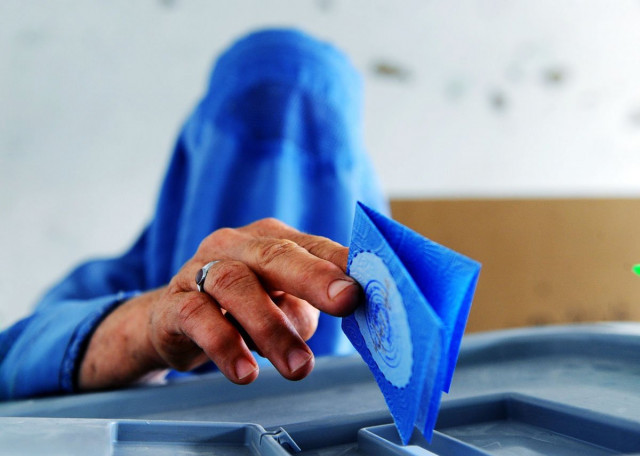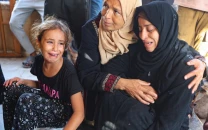A week of positive developments for Afghanistan
The vote invalidation process is now under way ahead of the announcement of the final results.

The vote invalidation process is now under way ahead of the announcement of the final results.
This week, in a letter to Nato, the two rival presidential candidates promised to end their differences over election results, to agree on a national unity government and to sign a security pact with the United States. All this as Taliban insurgents, in an apparent reconciliatory approach, conveyed to Nato summit leaders that they can play a “central role” in resolving Afghanistan’s problems.
Another positive development this week was the decision by powerful insurgent leader Gulbuddin Hekmatyar, the chief of Hizb-e-Islami, to assure support to presidential candidate Ghani, who is ahead of Abdullah in the preliminary results from the run-off.
Hekmatyar sent his two sons to Kabul to assure Ghani of his support. This is being seen as a major shift in Hizb’s policy; to seek a more political role when Afghan leaders are talking about a government of national unity.
Furthermore, Afghans breathed a sigh of relief on Friday as the country’s Independent Election Commission (IEC) reportedly announced the completion of the audit of the nearly eight million votes polled in the June 14 election run-off. IEC Spokesperson Noor Mohammad Noor said both candidates wanted an entire audit of the votes and had committed to accepting the final results, Tolo TV reported.
With the recount over, Afghans now anticipate the announcement of the final result and the first ever democratic transition in the country’s history.
A political impasse which developed over Abdullah’s rejection of the preliminary results delayed the inauguration of the new president.
Nato summit
The political crisis deprived Afghanistan of high-level participation in the Nato summit held in Wales on September 4th and 5th. Karzai skipped the gathering and sent his defence minister Bismillah Khan Mohammadi instead.
Although Nato leaders met at the summit to mainly focus on Ukraine, they also assured continued support to Afghanistan. This was the last summit before the military alliance ends its combat mission in Afghanistan.
Afghan defence minister Mohammadi said Nato leaders have agreed to increase Nato’s annual funding for Afghan national security forces beyond 2014 from $4.1 billion to $5.1 billion. Nato Secretary General Anders Fogh Rasmussen, however, said the continuation of international financial aid for Afghan forces could depend on the presence of foreign troops in the country after 2014, which, in turn, depends on whether or not the Bilateral Security Agreement (BSA) with Washington is signed.
Karzai had refused to sign the BSA and set conditions that US helps the country in the peace process with Taliban and halts raids on Afghan homes.
Abdullah’s boycott of the election results and differences over the national unity government raised serious concerns in and outside Afghanistan at a time when foreign forces are devising an exit strategy. However, Abdullah and Ghani allayed the apprehensions of Nato countries in a joint letter to the summit and committed to ending the crisis over the disputed election and sign the BSA.
Rasmussen confirmed he received the message from the two presidential candidates, indicating they will do all they can to reach a political agreement.
Post 2014 concerns
As Nato troops pack up, concerns are growing about the escalation of Taliban fighting and some even talk about a possible civil war. However, a Taliban statement on the eve of the Nato summit has raised some hopes for a possible change in their policy of war.
“The Islamic Emirate can play a central role in resolving the ongoing crisis of Afghanistan,” said the Afghan Taliban message to Nato leaders. Islamic Emirate is the name the Taliban use for themselves as this was the name of Afghanistan when they ruled it from 1996-2001.
The statement did not use the Taliban’s traditional language of waging jihad and threats, which can be seen as a possible change in their approach. Moreover, they also tried to remove the impression that they support international militant groups, including al Qaeda.
The Taliban message also said the group will never allow anyone to use Afghan soil to harm another nation.
However, some Afghan analysts doubted their statement saying it would be premature to make a conclusion.
Published in The Express Tribune, September 6th, 2014.



















COMMENTS
Comments are moderated and generally will be posted if they are on-topic and not abusive.
For more information, please see our Comments FAQ